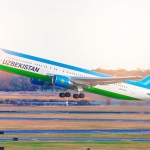07 SEPTEMBER 2019 Y.
Kokand (alternative spellings: Khokand, Khokend, Kokan, Khoqand; Uzbek: Quqon; Russian: Коканд; Tajik/Persian:Куканд/کوکند ;Chagatai: خوقند) is a city in Fergana Province in eastern Uzbekistan, at the southwestern edge of the Fergana Valley. It has a population of 192,500 (1999 census estimate). Kokand is 228 km southeast of Tashkent, 115 km west of Andijan, and 88 km west of Fergana. It is nicknamed “City of Winds”, or sometimes “Town of the Boar”. It is located at 40°31′43″N 70°56′33″E / 40.52861, 70.9425 at an altitude of 409 meters.
Kokand is on the crossroads of the ancient trade routes, at the junction of two main routes into the Fergana Valley, one leading northwest over the mountains to Tashkent, and the other west through Khujand. As a result, Kokand is the main transportation junction in the Fergana Valley. Kokand has existed since at least the 10th century, under the name of Khavakend and was frequently mentioned in traveler’s accounts of the caravan route between India and China. The Mongols destroyed Kokand in the 13th century.
The present city began as a fort in 1732 on the site of another older fortress called Eski-Kurgan. In 1740, it became the capital of an Uzbek kingdom, the Khanate of Kokand, which reached as far as Qyzylorda to the west and Bishkek to the northeast. Kokand was also the major religious center of the Fergana Valley, boasting more than 300 mosques.
Russian imperial forces under Mikhail Skobelev captured the city in 1876 which then became part of Russian Turkistan. It was the capital of the short-lived (1917–18) anti-Bolshevik Provisional Government of Autonomous Turkistan (also known as Kokand Autonomy).Adeeb Khalid. The Politics of Muslim Cultural Reform, Jadidism in Central Asia, Oxford University Press, 2000.














